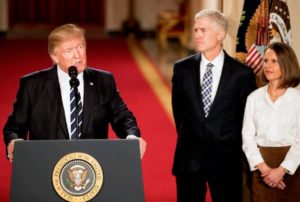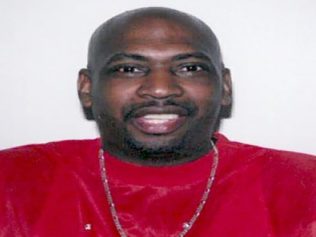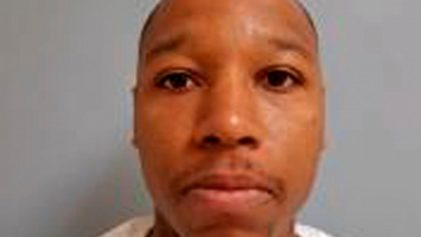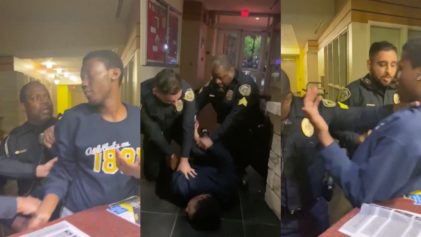
Wikimedia Commons
Judge Neil Gorsuch, President Trump’s nominee for the U.S. Supreme Court, has been promoted to the public as a genteel, polite, squeaky-clean jurist who is imminently qualified for the position he seeks on America’s high court. A most-relevant part of his record is his views on civil rights, and his decisions in cases involving African-Americans.
Neil Gorsuch has a Black people problem and his racial antagonism belies his friendly veneer. If he is confirmed, Gorsuch will find himself in league with the late Antonin Scalia. Clarence Thomas and Samuel Alito will have a new friend on the court, and together they will continue to stick it to Black folks. We should have expected no less from Donald Trump.
As a conservative student at progressive Columbia University, Gorsuch criticized civil rights and anti-apartheid protesters, seeming to care more about the well-being of corporations than human rights for African people. “Our protesters, it seems, have a monopoly on righteousness,” he wrote in the Columbia Spectator. Gorsuch claimed the divestment efforts would hurt the university’s endowment because the investments paid “for our need-blind admissions policy.” He also alleged there was no need to protest companies because many of them were already divesting from the South African regime.
“Last Saturday’s march was more a demand for the overthrow of American society than a forum for the peaceable and rational discussion of these people and events,” Gorsuch wrote about an anti-racism campus protest in 1987. “Those who addressed the march argued not for a change within the system, but for a radical change of the system.” The Columbia student also expressed support for the right-wing militia group known as the Nicaraguan Contras during Reagan’s Iran-Contra scandal and dismissed student activists fighting gentrification as publicity seekers.
As a judge, Gorsuch has continued to express his troubling views on matters of civil rights and social justice. When he worked in the Bush administration, he admired and praised Hans von Spakovsky, who, as The Nation found, has done more to limit voting rights than anyone in the Republican Party. Von Spakovsky has spread the myth of voter fraud and has promoted voter ID and other voter suppression efforts that target Blacks, Latinos and others.
In the Senate confirmation hearings this past week, Gorsuch’s cold-bloodedness on the bench came to light when Sen. Al Franken questioned the judge on his decision against a Black truck driver named Alphonse Maddin. Sitting for three hours in an unheated truck in the freezing cold, Maddin, on the verge of dying of hypothermia, was fired by TransAm Trucking for disobeying his supervisor and abandoning his truck after its brakes had frozen. A panel of appeals court judges ruled against the company. Gorsuch was the only dissenting voice on that panel, writing an opinion in favor of the company and characterizing Maddin’s life-threatening experience as “unpleasant.”
“I think everybody here would have done exactly what he did,” Sen. Franken said of Maddin while addressing Gorsuch at the Tuesday confirmation hearing. “It is absurd to say this company is in its rights to fire him because he made the choice of possibly dying from freezing to death or causing other people to die possibly by driving an unsafe vehicle. That’s absurd. Now, I had a career in identifying absurdity and I know it when I see it. And it makes me—you know, it makes me question your judgment.”
In keeping with Trump’s criminal justice philosophy, Gorsuch is a law and order judge. His ruling against a Black man who died in a botched Oklahoma execution bears this out. In 2014, Clayton Lockett died of exploding veins and a massive heart attack after his executioners used a deadly, previously untested cocktail of three deadly chemicals. The Black death-row inmate was tortured and suffered for 43 minutes. In a lawsuit filed by Lockett’s family against the state of Oklahoma, Gorsuch concluded Lockett’s death was not cruel and unusual punishment, a violation of the Eighth Amendment. Rather, Gorsuch and the rest of the panel referred to the death as an “innocent misadventure” and “isolated mishap.” Although the judges noted Lockett suffered, they said, “such an event, while regrettable, does not suggest cruelty,” because the Constitution does not require “the avoidance of all risk of pain in carrying out executions.”
According to a report from the Lawyers’ Committee for Civil Rights Under Law, Gorsuch has a narrow view of civil rights and is deferential to police officers, believing they should not be second-guessed. For example, in one case, Gorsuch concluded a police officer was entitled to qualified immunity after shooting a man in the head with a taser at close range. The man, who had fled arrest for marijuana possession, died as a result of the incident.
As the NAACP Legal Defense Fund noted, Gorsuch has attacked those who seek equal rights from the courts, and has concluded that “American liberals have become addicted to the courtroom.” In a report opposing the Supreme Court nominee, the civil rights group wrote, “Across different issues, including when race is directly and indirectly implicated, Judge Gorsuch has regularly favored the interests of the privileged and powerful — whether the government, corporations or wealthy individuals — at the expense of equality and inclusion.”
The American Bar Association gave Judge Gorsuch a “well qualified” rating, its highest rating for judicial nominees. Democrats are pushing back, insisting that Gorsuch is stealing a Supreme Court seat from President Obama, whose nominee Merrick Garland was refused a hearing by the Republican-controlled Senate. As The Hill reported on Thursday, in a blow to the confirmation process, Senate Minority Leader Charles E. Schumer (D-N.Y.) said he would join with other Democratic lawmakers in filibustering the Gorsuch nomination.


